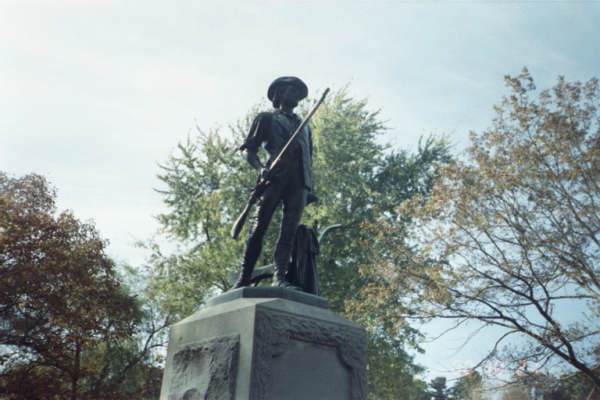The alleged ringleaders of the criminal gang acquired intelligence about Colonel Smith’s orders even before he received the actual orders, and had spread the word of the impending military operation throughout their underground organization.
The military force arrived in Lexington at 5:00 AM on April 19th, and were met by a group of about 50 of the alleged criminals, armed with a variety of illegal weapons, mostly assault style rifles, shotguns and even some handguns. The gang was ordered to lay down their weapons and to surrender. Even being greatly outnumbered 14 to 1, the alleged criminals refused to obey the lawful order and began to disperse rather than surrender. At this point, gunfire was exchanged and the criminals scattered. Initial reports indicate that eight gang members were killed, and 10 more were wounded. It is unknown how many casualties the military force suffered in this gun battle. The law enforcement contingent then executed several no-knock operations in Lexington before continuing towards Concord. A number of criminals were taken into custody.
The law enforcement officials set up their command post in the center of Concord. Several patrols were able to search out and destroy caches of illegal weapons and other contraband hidden in carious building and shelters near the town center. Unfortunately, the criminals, having had advanced notice of the operation, were able to remove large numbers of weapons before they could be destroyed.
One of the patrols met resistance just north of Concord center, at a bridge crossing the Concord River. The criminal groups had managed to bring over 400 gang members together, apparently intent upon ambushing the military patrol as they crossed the river. This much larger group was also armed with illegal small arms. As the Government negotiators spoke with the self-appointed leaders of the gang, shots again rang out.
Col. Smith decided to recall and regroup his forces. The gang members conducted numerous unprovoked attacks on the military forces that had assumed a defensive posture for a return to Boston. Throughout the return trip to Boston, isolated gangs of criminals continued to attack and harass the military force. By nightfall the remainder of the military force was safe in Boston. But on this day, in Massachusetts, during an operation to confiscate firearms, the British lost 273 soldiers and the Minutemen lost 93. The American Revolution, a battle for freedom, was underway; it was April 19, 1775.
The same battle for freedom continues today.
by Jim Gozzo
The Outdoor Message
a publication of
GOAL
April 2002
